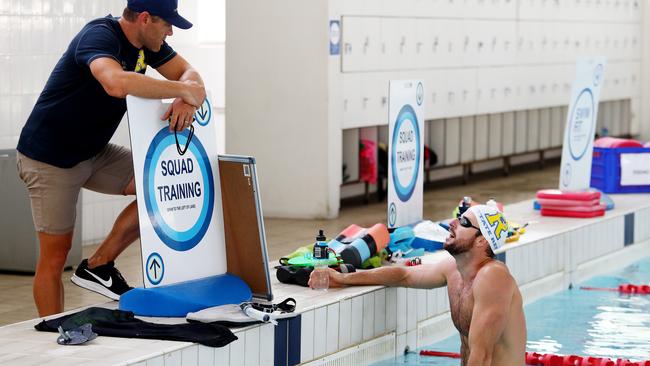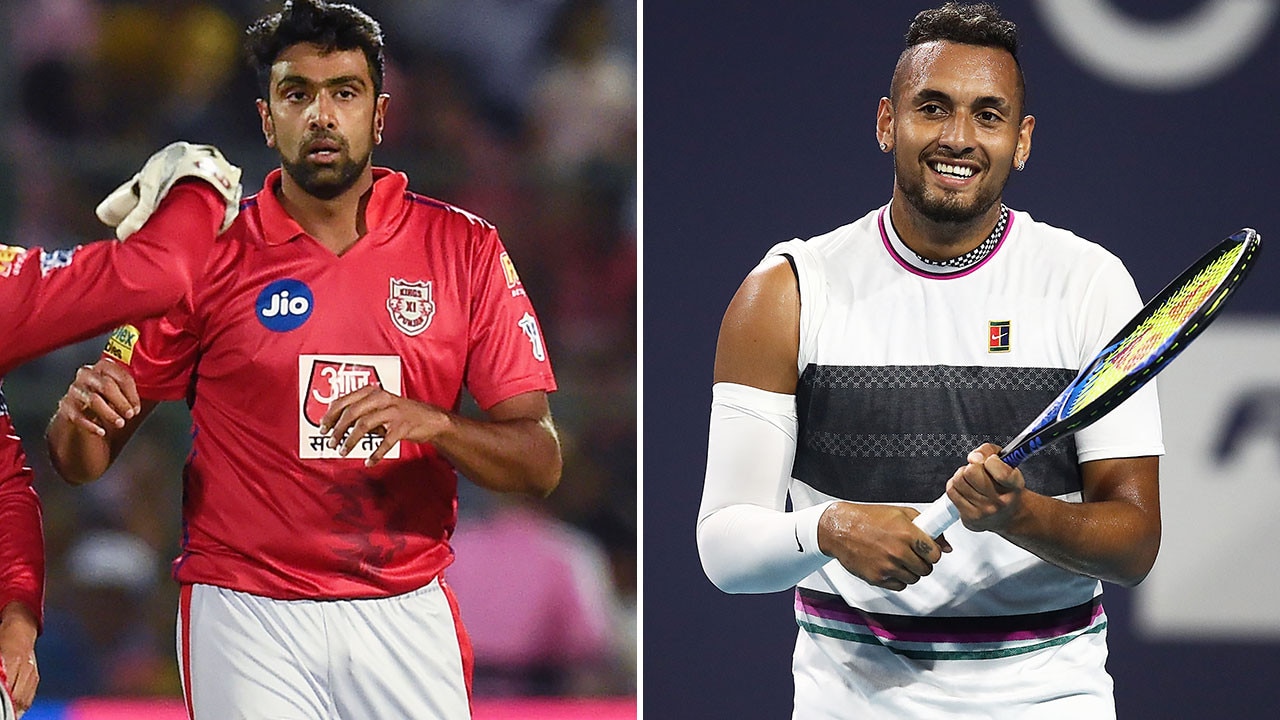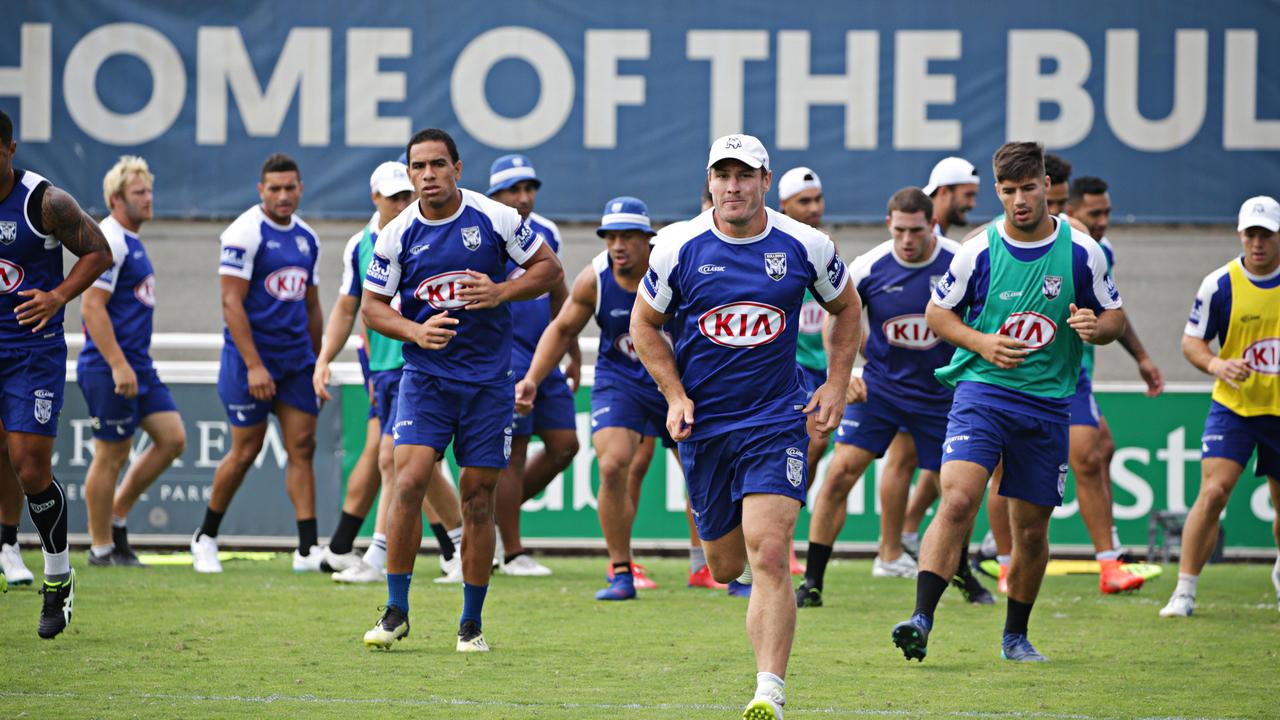James Magnussen was not wrong about Winter Olympics
James Magnussen’s claim that Winter Olympians are treated softly in the court of public opinion is correct.

Here’s the thing about James Magnussen’s claim that Winter Olympians are treated softly in the court of public opinion.
He’s right.
His remarks were a bit clunky and came across as a whinge, but there was truth to what he said. Exhibit A: Alex Pullin would have been torn to shreds for brushing a teammate if he was a more high-profile or mainstream Australian athlete.
The Seven Network’s coverage reflects the national attitude towards PyeongChang. The broadcast is a light-headed mixture of Sunrise and My Kitchen Rules. New contestants! Athletes are profiled as if they’re guests being introduced on reality TV. As virtual strangers, they have to be — the global prestige of the Winter Olympics does nothing to change the fact that most of us are completely in the dark about these people and their professions.
The intricate details of David Morris’s back double full/double full/full are unknown. He either lands on his feet or his arse. Anything else to know?
We expect nothing from athletes we’ve mostly never heard of in sports we do not understand. That’s a fail on our part, not theirs. But it’s what Magnussen was alluding to in his rather ham-fisted way. Winter Olympians are regarded by the public as battlers who’ve had a win by even knowing what snow looks like. They’re not held to account nearly as sternly Australia’s elite cricketers, footballers and when it comes to Olympians, the swimmers.
We’ve been blissfully unaware of their results in the four years between their Games appearances. We’re sort of surprised we even have Winter Olympians, given we’re girt by sea and made up of 70 per cent desert. We view gold medals as some sort of miracle on ice. The best way to win one? Do a Bradbury! Too few medals is understandable and accepted. Mid-range results are celebrated. A semi-finalist in the speed skating! Beauty! At the time of writing, Australia had zero gold medals, two silver and a bronze. That’s all right! It’s not really our thing.
Seven’s anchor crosses to “Richo and Kenno” at Phoenix Park and the whole thing comes across as a casual look at something taken more seriously by others.
Australian speed skater Daniel Greig is a case in point.
“When I tell people in Australia that I’m a speed skater I usually get the same responses,” Greig said. “People say, ‘oh like in Blades of Glory?’ Or they go, ‘so you’re the next Steven Bradbury?’ Or they ask ‘so what tricks can you do? I pretty much have to take a deep breath and be like, ‘No, I don’t do what Will Ferrell did and I don’t do any tricks and my sport is different to Bradbury’s.
“I’m hoping one day the sport will become more recognised in Australia. Hopefully I can skate well at these Games and people at home will start paying a bit more attention to it.”
When Russ Henshaw was in qualifying for the men’s slopestyle yesterday, it appeared regrettable that he was going backwards down the hill. Wrong way, mate! Turn around! Until it became apparent that he was meant to be heels-first. Henshaw missed the final. So what! We cut Winter Olympians (and a lot of summer Olympians) a little slack because we have to. We don’t have the knowledge to get too judgmental. We know our cricket. We know our football codes. We know what we’re talking about with those sports, and so we do a lot of talking.
We can’t get too uppity about someone not landing a double-cork 360. They are existing in a different world to what we know.
“It seems to have a much more laid-back, relaxed feel to it,” Magnussen said on Fox Sports. “They’re listening to music during the event, you’ve got sponsors on their boards, you’ve got advertising everywhere.
“Whereas the (Summer) Olympics is this super professional, super intense environment where none of that is allowed. You’re not expected to show any personality, you’re not expected to have fun. You’re there for a reason and that’s to win gold.
“They certainly seem to take a different mental approach to this Winter Olympics and I think as a result we as the public and the media are judging them less harshly than we may judge an Olympic Summer Games athlete. If Scotty James was a swimmer going into that event as the world champion and expected to win, and he got bronze, how would we be reacting to that?”
Magnussen was partly right there. James is a multi-millionaire halfpipe world champion who finished third behind American Shaun White and Japan’s Arumu Hirano last week. He won his world title at Spain’s Sierra Nevada last year with a score of 92.25; he took bronze at PyeongChang with a score of 92. There was not much to complain about there given White’s pedigree as the all-time great, and perhaps James wasn’t the best example for Magnussen to use.
The polarising swimmer was obviously alluding to the criticism of his silver medal by 1/100th of a second at the London Olympics and his shocker of a lead-off swim in the failed 4x100m freestyle relay.
When Magnussen was found to have abused Stilnox in a team bonding exercise, he became the face of the entire shamed Australian team. Hence his sensitivity to criticism. If the Winter Olympians had their version of the Stilnox Six, it would still be an issue — but one likely to drop off the radar more quickly. Footy’s coming.
If Magnussen did what Pullin did at PyeongChang, walking away after a race without congratulating a fellow Australian who had hung tough to win the silver medal, he would have been howled down for the lack of sportsmanship. Pullin’s ignoring of Jarryd Hughes was comparable to NSW rugby league captain Paul Gallen walking away from Queensland skipper Cam Smith’s victory speech at State of Origin. Gallen was called to account; Pullin was not. If Nick Kyrgios failed to shake hands after a match, or Steve Smith, or Michael Hooper, or Johnathan Thurston, or Jarryd Roughhead, or Mile Jedinak, there would be hell and probably a fine to pay. Pullin gave 10th-placed Australian Cam Bolton a high-five but did not say a word to Hughes. The silver medallist said: “It is what it is.”
Which describes the Winter Olympics to plenty of us. It is what is it is, whatever that is. The highlights are incredible. The snowboarding and aerials finals have been breathtaking. The scenery is beautiful. The athleticism is extraordinary. The courage is immense. We know we’re watching top-level athletes. We know it’s a premier global event. But we cannot judge it too intensely because we do not really know or follow it as a nation.
Magnussen should be familiar with what happens next. Between now and the 2022 Games, the novelty will wear off.
super gee-up P30



